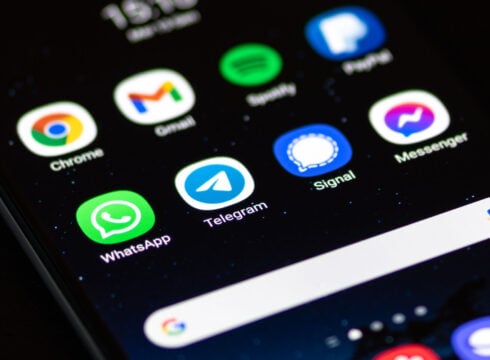The industry body has urged the government to incorporate a mechanism into the draft Telecom Bill by defining ‘usage charges
Any entity which creates a property or infrastructure by investing funds is entitled to take usage charges: COAI
As per the COAI, the charges should be arrived at amicably between the OTT platforms and the telcos
Inc42 Daily Brief
Stay Ahead With Daily News & Analysis on India’s Tech & Startup Economy
Telecom industry body Cellular Operators Association of India (COAI) has written to the Department of Telecommunications (DoT) saying over-the-top (OTT) communication platforms should be made to pay ‘usage charges’ to telecom operators.
The industry body has also urged the government to incorporate a mechanism into the draft Telecom Bill by defining usage charges, as well as a definition of what constitutes an OTT communications platform, according to media reports.
As per the COAI, the charges should be arrived at amicably between the OTT platforms and the telecom operators. However, if they fail to do so, the government should bring in a licensing and regulatory framework governing the contribution of OTT players towards creation of a network infrastructure.
“Any entity which creates a property or infrastructure by investing funds, is entitled to take usage charges (rent or lease charges, etc.) from the user of that property or infrastructure who uses the same for commercial purposes,” the COAI wrote to Telecom Secretary K Rajaraman.
The industry body mentioned that the objective behind the recommendation is not to discourage the OTT communication platforms like WhatsApp and Telegram which generate massive traffic on the network set-up by the telecom service providers. However, as these platforms continue to gain massive direct and indirect benefits at the expense of telecom operators, they should compensate the latter for using their network.
“The European Commission (EU) is advocating for formalising due legislation for OTT players to share the network investment burden of the telecom players in a proportionate manner,” the letter read.
It must be noted that the DoT published the draft Telecom Bill in September to bring sweeping reforms in the industries. Besides the telecom sector, the draft bill also aims to regulate OTT communication apps.
It seeks to replace three laws – the Indian Telegraph Act, 1885, the Indian Wireless Telegraphy Act, 1933 and the Telegraph Wires (Unlawful Possession) Act, 1950.
However, the draft Bill has come under criticism from industry bodies such as the Internet Freedom Foundation (IFF) and the Asia Internet Coalition (AIC), other industry stakeholders, and even the Telecom Regulatory Authority of India (TRAI) due to some of the proposed regulations.
Recently, the Internet and Mobile Association of India (IAMAI) said that the recently-concluded consultations on the draft Telecom Bill were either a ‘wilful misinterpretation’ of how the digital economy works or lacked the fundamental understanding of it.
The IAMAI also noted that by creating room for making licensing provisions applicable to OTT service providers, the government is creating an ‘existential threat’ to India’s startup ecosystem.
Note: We at Inc42 take our ethics very seriously. More information about it can be found here.


